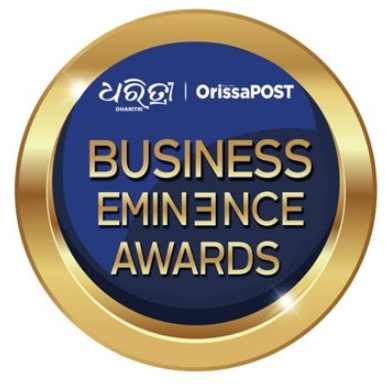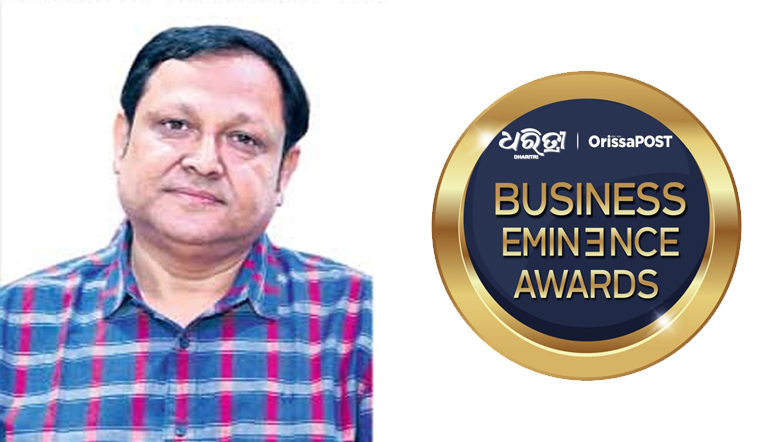Yuvodaya Institutions is one of the premier educational destinations in the state based in Bolangir. The institution was started with an objective to align the level of education in the state with that of international standards. The man behind this is Ambarish Dash, Director of Yuvodaya Institutions who has taken the institution to new heights with dedication and resilience. Initially, he worked for a company in Delhi, but eventually decided to return to his home state. With a vision to contribute to Odisha’s growth, he entered the education sector. In an interaction, Dash shares his journey and entrepreneurial experience. Excerpts…
Can you brief us about your early life and what made you enter the education industry?
The educational challenges in the KBK (Kalahandi, Bolangir, and Koraput) and western Odisha region arose due to the lack of access to quality education. I was deeply inspired by my mother, Priyalata Dash, and have been consistently supported by my wife, Mirtabinda Dash, throughout every step of this mission. My journey began with the establishment of a +2 Science college in Bolangir, after achieving significant success in professional computer courses and formal degrees such as GNIIT, BCA, and MSW—programs that were offered for the first time in western Odisha.
Also Read: Recognition a basic human need: Krishna
Since our inception, we have consistently produced state toppers, starting with our first-year board exam results. Over time, we expanded into IIT and medical coaching, and every year we witness government MBBS selections, IIT, and NIT admissions. Our commitment continues to yield remarkable results, with students consistently securing top ranks in various fields.
Being a major player in the education industry, what do you think are the challenges that the sector is facing in the country?
One of the main challenges that the education sector in India is facing is the gap between government and private sector mentalities. Government institutions lack accountability, while private institutions are more answerable for their actions. The government sector has the potential but lacks a proper accountability system, which is why it often underperforms. On the other hand, private institutions ensure accountability and performance. Additionally, corruption in the education sector, such as the leaking of question papers, is a serious issue that needs to be addressed. The introduction of the National Education Policy aims to address employability, but for it to be effective, accountability is the key.
The digital revolution is here. What implications will AI have in the education sector?
The digital revolution, especially AI, can have profound implications for the education sector. Just like atomic energy, if used correctly, it can benefit society, but if misused, it could turn harmful. AI can play a crucial role in tracking students’ progress, but we need to be cautious about over-reliance on it. For example, if students use AI like ChatGPT as a crutch for learning, they might lose their ability to think critically and independently. This issue was seen in Sweden, where everything was digitised, including education. In 2024, they reversed this decision, realising that over-digitisation was harming students’ creativity and independent learning. I am not against digitalisation, but it should be limited and used in moderation. There should be mechanisms in place to ensure that digital tools are used in a way that benefits students.
The Indian education system has often been criticised for its emphasis on rote memorisation and test scores, rather than fostering a culture of critical thinking, creativity, and practical skills. What measures should be taken to prepare students accordingly?
To address this, we need to shift the focus towards holistic learning. Teachers must be trained to encourage students to think critically and creatively. The focus should be on developing problem-solving abilities and practical knowledge, not just memorising the course for exams. The education system needs to evolve to produce well-rounded individuals.
As a successful entrepreneur, what advice will you give to newcomers who want to start off their journey in this industry?
My journey has been driven by the pursuit of quality education. When we started our institution, there were two objectives: commercial and service-oriented. If the focus is purely commercial, you would prioritise infrastructure. However, our primary goal is service – especially reaching out to rural areas and empowering students from those communities. If someone wants to enter the education sector, the most important thing is to have a passion for teaching and empowering others. Secondly, focus on what you enjoy and where your strengths lie. Do it with passion, or not at all. This is the approach I have taken, and it’s why we are now producing state toppers.
Follow Us:
